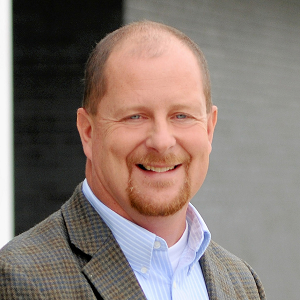Americans across the country have battled economic sluggishness for a few years, but lately, the mood has soured even further. GDP at the end of the first quarter was 0.3% lower than at the end of 2024, hard evidence of a slowdown and reflective of the pessimism evident in consumer sentiment data. That data paints a gloomier picture, suggesting members aren’t just feeling negative in the moment but expect the future to be bleak as well.
In response, many credit unions are leaning into their mission while steering clear of controversy. They’re putting members’ emotional needs first, doubling down on their organizational philosophy, and fine-tuning their communication skills.
“Credit unions are built for economic uncertainty,” says Lauren Duffy, chief operating officer of UMassFive College Federal Credit Union ($696.8M, Hadley, MA).
It’s As Emotional As It Is Financial

Many members need financial help right now. With a slowing economy and elevated inflation, Americans are feeling the pinch in their pocketbooks. Others, still, are spooked by headlines and feeling anxious.
In response, UMassFive is letting its members know it hears their voices and frustrations.
“Members need to vent or have their concerns heard,” Duffy says. “There might not be anything we can do about it other than reassure them that we’re the same institution we always have been and we’re following all of the rules and procedures that we always have.”
When a member asked if their money was safe from Elon Musk, the credit union quickly developed talking points and made sure its team members were leading with empathy and respect for member concerns. Even with those steps, there’s so much up in the air, emotions have room to run wild.
“That’s a challenge right now,” Duffy says. “So many of the concerns are actually not concrete yet.”
Halfway across the country, Honor Credit Union ($1.7B, Berrien Springs, MI) is projecting calmness, especially for members who are panicking,
“The biggest thing is to get them stabilized,” says Scott McFarland, CEO of Honor. “Hold on. There have been tough times in the past, and while we can’t see the future, we can walk with you as we go toward it — and here are some resources so you don’t put all that 401(k) under your mattress and hope that it’s the plan for the future.”
Supportive, Not Smothering

Members need help when the economy is choppy, but how can credit unions identify who needs what types of relief without coming off as too pushy or, even worse, as too creepy? Navigating the push and pull of proactive versus reactive approaches makes a major difference.
During the COVID-19 downturn, Honor identified which members were likely in need of help but whose employment and financial position was steady. In these scenarios, where a member needs to patch the gaps, Honor steps in with a quick fix.
“We extend loans through an e-mail in their app,” McFarland says. “The app says you have $2,500 available to you.”
These one-click loans require a soft credit check but are designed to give members access to cash without slowing down the process with red tape.
By doing much of the work for members, Honor relieves one of the key impediments to asking for help: intimidation.
“We have to be more proactive rather than less proactive,” McFarland says. “Live with smart proactivity.”
Leaning On Organizational Philosophy
Understanding lessons from previous downturns makes credit unions more resilient for the next one. At Texas Trust Credit Union ($2.0B, Mansfield, TX), the COVID-19 pandemic presented the chance to reassess its priorities.
The credit union realized its core reason for existence was to serve members and adjusted its philosophy accordingly. It resisted aggressive balance sheet growth and doubled down on existing memberships with savings accounts and direct loan products.
To ensure its newfound focus on member relationships doesn’t collide with widespread economic headwinds, Texas Trust keeps a close eye on metrics like delinquency and charge-offs and benchmarks them against local peers. This ensures it doesn’t turn on the spigot on too fast.
The last thing we need to do is shut the shades, close the door, and hope nobody knocks.
Honor, too, wants to make sure it doesn’t turn on the spigot too fast, but it also wants to ensure that spigot does remain open when members are most in need.
“The last thing we need to do is shut the shades, close the door, and hope nobody knocks,” McFarland says.
It’s about balance — don’t turn members away, but don’t get out the megaphone. Also, think creatively about what members need.
Honor tries to offer resources that best fit the situation.
“Is giving members more debt the best opportunity?” the CEO asks. “One alternative example during COVID is we had unlimited loan skip payments.”
Understanding this balance — that an emergency loan adds more debt and perhaps a scalpel might be more appropriate than a chainsaw — is an important piece of the puzzle.
Don’t Forget Employees
Employees are living in the same economic uncertainty as members and are likely experiencing the same emotions and concerns. If they’re feeling anxious or nervous, then they won’t perform at their best. That ultimately hurts members.
So, think about how to take the financial burden off employees’ backs and help them remain focused, present, and engaged.
“By offering $500 of their next paycheck in advance, Honor helps employees smooth over difficult financial times,” McFarland says. “So far, we’ve had 80 employees take advantage of it.”
Buckeye State Credit Union ($144.2M, Akron, OH) makes sure employees are equipped with the know-how to meet the day.

“Every Monday we have a manager’s call where we train up the managers on how to train their team,” CEO Michael Abernathy says. “So when we are expecting some difficult times, we get them on that Monday call. We say, ‘Look this is what we’re seeing, this is what you need to prepare your team for.’ Then we have an all-staff call every Thursday where we reinforce certain things.”
For employees who are not sure how to approach a stressed membership, level setting and proper training can be a big lift.
In uncertain times, members and employees alike crave clarity, connection, and compassion. Credit unions are rising to the occasion not by reinventing themselves, but by reaffirming who they’ve always been: mission-driven institutions rooted in service.
Whether it’s offering reassurance, delivering just-in-time financial solutions, or training staff to meet the moment, credit unions are showing that steady leadership and empathetic engagement can be powerful antidotes to fear. As the economy wobbles, credit unions are walking alongside their communities — not with all the answers, but with open doors, open ears, and a willingness to help.
When Challenges Call, Callahan Executive Roundtables Answer. Callahan Roundtables offer C-suite executives the chance to connect with like-minded leaders to tackle challenges, share best practices, and shape upcoming strategies. Are you looking for new ways to support members, employees, the community, and more? Callahan Executive Roundtables has you covered. Learn more today.